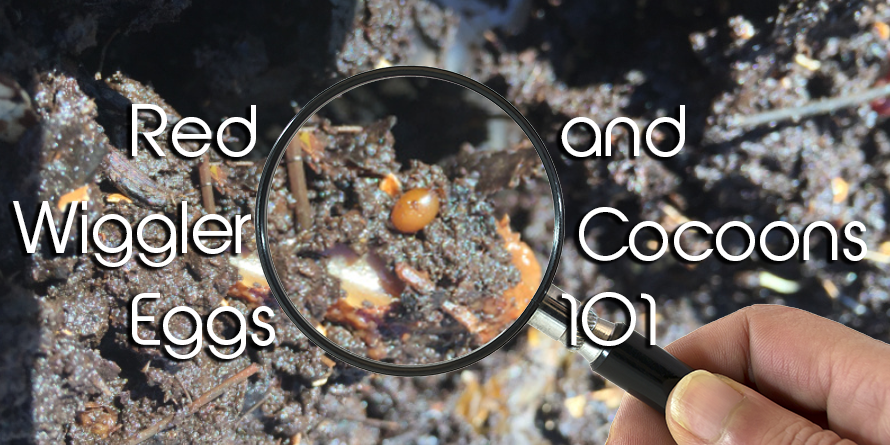The Secret to Lush Lawns Starts with Red Wiggler Express Lawn Care Services
Just How Red Wigglers Can Transform Your Composting Experience
The assimilation of red wigglers into composting techniques provides a transformative strategy to squander administration and dirt enrichment. These organisms not just quicken the decay procedure but likewise generate nutrient-dense vermicompost that boosts soil health and wellness and fertility. Their flexibility to various atmospheres makes them an ideal option for both newbie and seasoned composters alike. However, comprehending the details requirements and benefits related to keeping a thriving worm population is vital for optimizing their possibility. What strategies can one employ to guarantee a successful vermicomposting experience?
Advantages of Red Wigglers
Red wigglers, medically recognized as Eisenia fetida, are a foundation of efficient composting systems because of their amazing ability to decompose organic issue successfully. These worms stand out in transforming kitchen scraps, yard waste, and various other natural materials into nutrient-rich garden compost, generally described as worm castings. Lake Hickory Bait. This procedure not just minimizes landfill waste but additionally adds to sustainable horticulture techniques
One of the primary advantages of red wigglers is their high recreation rate, allowing them to occupy a composting atmosphere quickly. This quick multiplication enhances disintegration rates, resulting in faster garden compost production. Additionally, red wigglers prosper in a diverse series of problems, making them adaptable to various composting arrangements.

Establishing Up Your Worm Container
(Red Wiggler Express)To develop an effective worm container for composting, careful interest has to be provided to its layout and environment. An optimal worm container ought to be built of products that are resilient yet permit for necessary air flow, such as plastic or timber. The dimension of the bin can vary, however a quantity of approximately 1 square foot per pound of worms is a great beginning factor.
Guarantee that the bin has drain openings to prevent water build-up, which can bring about anaerobic conditions detrimental to the worms. Furthermore, including air flow holes will assist preserve appropriate moisture degrees and oxygen circulation.
Following, it is important to supply bedding for the worms, which can consist of shredded newspaper, cardboard, or coconut coir. This bedding not only provides a habitat for the worms however likewise help in wetness retention.
Setting the worm bin in a place that preserves a temperature level array this article of 55-77 ° F(13-25 ° C) to maximize worm task. Prevent putting the container in direct sunlight or extreme temperatures. By following these guidelines, you can create a conducive environment for red wigglers, boosting the performance of your composting procedure.
What to Feed Your Worms

(Charlotte NC Worms For Sale)Red wigglers specifically appreciate soft, wet foods like watermelon skins, cucumber peels, and banana peels. It is critical to stay clear of feeding them citrus fruits, onions, and garlic, as these can be damaging to their wellness. Additionally, prepared foods, dairy products, and meat needs to be strictly avoided, as they can lead to smells and draw in pests.
Giving a consistent feeding routine will certainly help keep your worm populace thriving while improving the total efficiency of your composting efforts. By comprehending what to feed your worms, you lay the foundation for a successful and sustainable composting experience.
Preserving a Healthy And Balanced Habitat
Creating a prospering composting setting for red wigglers requires interest to their environment, as it straight affects their health and productivity. The suitable habitat ought to preserve a well balanced dampness degree, typically between 60-70%. Extreme wetness can cause anaerobic problems, while not enough dampness may dehydrate the worms.

The bed linens product in the compost should vary and shredded, integrating materials like cardboard, paper, and coconut coir. This not just offers a comfortable setting however likewise works as a food resource. Lake Hickory Bait. Frequently checking for smells or signs of pests can aid identify potential problems before they intensify
Finally, maintaining a well balanced pH degree, ideally between 6 and 7, guarantees a helpful habitat for red wigglers, cultivating their ability to procedure raw material successfully. By addressing these variables, you can produce a lasting and productive composting ecological community.
Harvesting and Utilizing Garden Compost
Gathering garden compost from a worm bin is a satisfying process that transforms natural waste into nutrient-rich product for yards and plants. Once the composting cycle is full, generally after 8-12 weeks, it's time to accumulate the vermicompost. The initial step entails separating the red wigglers from the completed garden compost. This can be done using techniques such as the "light" approach, where worms are attracted to light and can be scooped away from the leading layers, or by relocating the compost to one side of the container and including fresh bedding to the other side, motivating the worms to move.
As soon as the worms are removed, the remaining compost can be sorted to get rid of any kind of bigger fragments or undecomposed product. The last item should have a dark, crumbly texture and a positive earthy smell, indicating that it awaits use. This rich compost can be applied directly to yard beds, combined right into potting dirt, or made use of as a top clothing for potted plants. By incorporating vermicompost right into your horticulture techniques, you not just boost dirt fertility however likewise promote healthy and balanced plant growth and lasting horticulture approaches.
Verdict
Including red wigglers right into composting techniques dramatically enhances the decomposition procedure and contributes to the manufacturing of nutrient-rich vermicompost. The resulting worm castings boost dirt structure, fertility, and microbial activity, inevitably promoting much healthier plant development.